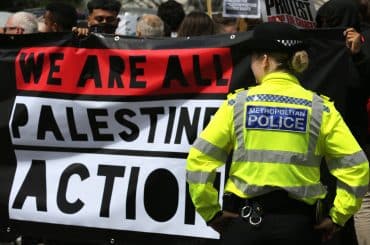Today I’ve got a guest blogger who I’m hoping will make more appearances in the days and years (touch wood) to come, the author and traveler James North (that’s his pen-name; I’ve known him for more than 30 years as Dan Swanson). North and I have long been curious about the Darfur issue. Why does it get disproportionate attention? What should Americans of conscience do? North has begun studying the issue. What follows is his introduction to his ideas:
I’ve had ambivalence about the save Darfur campaign for years. I’ve
spent time in the Sudan (not in Darfur itself, but just to the east, in Kordofan), so for me Sudanese people are warm and
real, not a distant abstraction, and the fact that several hundred
thousand of them have died is not something I can easily ignore.
At the same time, although I’m no expert, I know enough about the
Sudan to understand that it is complicated, and the way the conflict is sometimes portrayed
here – as bad “Arabs” murdering good “Africans” – is far too simple.
By “complicated,” I don’t mean that everyone is equally to
blame, that there are no war criminals, that the International Criminal
Court was not justified last week in indicting the Sudanese president,
Omar Hassan al-Bashir, for genocide. But “complicated” may mean that
there is no easy solution. If the Iraq War has taught us
anything it is that a military invasion by Western soldiers does not
end violence overnight.
I’ve also found some aspects of the Darfur
campaign disturbing. First, as the East African scholar Mahmood
Mamdani has pointed out in the London Review of Books, it sometimes appears that more people are protesting about Darfur here than about Iraq, which the U.S. is itself directly occupying. I
also sense – in precincts like The New Republic
– that Darfur is being used as another way to portray “Arabs” as murderous, religion-crazed fanatics
who will never make peace with Israel.
My suspicions could be wrong–or unimportant. Whatever the motivation of some of its
supporters, maybe the Save Darfur campaign has stopped a bad situation from getting worse? And though I’ve often noted that mass killing
continues, largely unnoticed, in Somalia and the Democratic Republic of the Congo, maybe instead of being a critic I should support the
Darfur campaign and try to extend it to those other places?
That’s why I decided to try to get up to date on what is actually happening in
Darfur. I looked into the latest work of several major Western experts
– including Julie Flint and Alex de Waal, and Gerard Prunier. In coming days I
will report on what they’ve said. Even though
they have spent decades studying the region, they don’t always agree–a fact that underscores the complexity of Darfur.
My research project speaks to the tremendous inequality between the rich world and the poor world.
I’m sitting down to look into the intricacies of tribal and ethnic
clashes in a remote area partly because I live in a rich
country that can have an impact there. By contrast, people in the
Sudan are not studying, say, the details of U.S. policy toward native
Americans, so that their government might pressure our government into
improving conditions on the Navajo and Sioux reservations.

